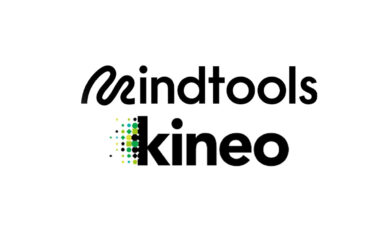
The first mental picture I get when I think of pruning and growth is a garden; the second is about relationships.
In both those instances, when we are managing the process, the expected outcome is growth. (I call this “intentional pruning.”) However, there are other examples of pruning where we are not managing the process, and the result then is usually a setback. (I call this an “involuntary pruning.”)
Two memorable, involuntary prunings happened to me when I was a commuting college freshman: being fired and becoming homeless. These events were unrelated but occurred within days of each other in early spring.
An Involuntary Pruning
My first job while a college freshman was as an administrative aide doing research and retrieval work in a small campus office. By my second semester in this position, I was very familiar with the office “work cycle.”
I had a great relationship with my immediate supervisor, but not so much with our department head. It was clear that she didn’t like that a “student” learned how to use the new database system faster than she did and she often sought ways to remind me of my place.
I can’t recall the supposed “infractions” I committed, but my department head eventually found ways to give me two strikes. Due to my comfort with computers, my initiative, and my general curiosity, I naturally wanted to complete more of the work cycle independently. The problem was that I wasn’t authorized to do one of the intermediate steps, although my processing was correct. Subsequently, the department head fired me.
Growing After Setbacks
This pruning was the first (and only) time I have experienced an “involuntary separation” from a job that wasn’t related to corporate downsizing. I was utterly devastated and felt like this setback would haunt me for a long time. But it didn’t.
I quickly found other part-time jobs, and it soon became a blip on the radar. I learned that, although showing initiative in the workplace is a positive attribute, your colleagues may not always appreciate it. I also learned resilience, and how to “stay in my lane” at work.
“There is no such thing as a linear life.”
― Brittany Burgunder, American writer
Losing My Home
Several days after this episode, my parents informed me that we had to pack our belongings for storage because we were being “pruned” from our home: they didn’t give me details, but I understood that we were about to become homeless.
One of my parents left to move in with a relative living two counties away. The other parent, my two siblings, and I slept in various places over the next few months. On a few good nights, we stayed in a hotel or motel room. Other times, we slept in a 2-seater car, or on seats at the rail station’s 24-hour, open waiting area. I felt embarrassed and more than a bit helpless.
That summer, I managed to find a temporary full-time office job. Before it got too hot, a gracious family we knew allowed us to stay in their basement for about three and a half months, until my parent secured an apartment for us.
That setback affected me more than I can explain. It instilled a new level of awareness, humility, compassion, and empathy for those who are homeless. While transient, I saw some myths dispelled and learned about degrees of homelessness. I am thankful that my family didn’t experience a worse level of homelessness. I learned that all homeless people don’t look the same, live on the streets, or stay in shelters. Every homeless person has a story.
Why We Prune
In gardening, we do the pruning to enable more robust plants, encourage a better harvest, and choose the direction of our growth. We make the cuts and see the direction of our progress.
In our own lives, when someone else does the pruning, it can catch us unprepared: it disrupts our plans and the path we thought we were on. The initial shock can cause finger-pointing and invite feelings of resentment or anger. Choosing to remain in that state can blind us to an opportunity for growth.
After a setback, it’s more than fair to allow ourselves a short “grieving” period to regroup. If you’re going through this and find that you’re in a vulnerable state, try asking yourself: did any of my actions contribute to this? What can I do with this newly available space or time, and what did this experience teach me about myself or someone else?
New Shoots From Old
In our #MTtalk Twitter chat this Friday, we discussed how growth might happen as a result of cuts and setbacks. Here are all the questions we asked, and some of the best responses:
Q1. Are cuts and setbacks necessary, yes or no? Why?
@J_Stephens_CPA Yes – sticking with the gardening reference @SoniaH_MT had in the blog, if you don’t prune, the natural growth goes wild and becomes a thicket. We have to limit ourselves sometimes (back to the boundaries chat).
@SoniaH_MT Cuts are necessary to help bring balance or make space for other things. Setbacks occur when our plans or paths are altered by someone else.
Q2. What does it feel like to be “involuntarily” pruned?
@pavelStepanov77 Pruning is essential. If are not up to it, you’ll never grow as a person and you will live making the same mistakes over and over again.
@virtudeskcom It hurts to be pruned, but everyone needs this to change and become a better person.
Having my trust in a loved one pruned is something that I find difficult to deal with.
Q3. Which cut or setback have you found exceptionally difficult to deal with?
@lg217 I remember being cut because of takeovers and not knowing why I was being cut especially since I had the background and experience that was necessary for the business. It surprised me and threw me for a loop.
@PG_pmp I have been in these situations, these are difficult to face when you are at a certain stage of life where one cannot afford setbacks.
Q4. What skills have you developed because of dealing with setbacks?
@MikeB_MT I’ve learned to look at situations and opportunities in different ways. To trust myself. To be proactive. And to take smart risks.
@Yolande_MT Setbacks have also taught me empathy and compassion – to ask, “How would I have felt if I were in their position?”
Q5. What opportunities have opened to you because of a setback?
@TheTomGReid Setbacks have strengthened my faith, forced me to learn skills I do not enjoy (marketing, e.g.!) and to constantly improve myself in character, competence, compassion, communication, and commitment. All this led to the book on building myself into a better “me” (leader).
@CaptRajeshwar Others reached the destination, I enjoyed the journey. Others got lighter, I learned to light fire by stone… Others saw sand, I saw the new lease of life. Others saw barren desert, I saw green forest.
Q6. Who has helped you look at setbacks differently? What did they tell/ask you?
@PmTwee Early days of my career I used to get frustrated easily. My senior encouraged me to accept and asked me to see deeply what went wrong and how to differently think about it. It’s a life lesson.
@DhongdeSupriya I can’t quote one name only. Blessed to meet so many wonderful people and it taught me that you are never alone. There will be someone to help you.
Q7. What are the signs that you need to do some intentional pruning in your life?
@ColfaxInsurance When I notice that something/someone/etc is causing more of a drain on me than it’s giving me pleasure or growth.
@DrKashmirM Well, in my humble opinion it can be different for different people. Like bad health, or having a lot of money but no satisfaction, anger bouts, feelings of hate, jealousy.
Q8. How do you feel when you are intentionally pruning something in your life?
@MindfulLifeWork I experience most pruning as a feeling of freedom, but I also know that ‘letting go’ is one of my strengths. Thus, my work is to be sure to not let go unnecessarily or prematurely, as it’s important to cultivate a well-rounded approach.
@SarahH_MT Intentional pruning is empowering and energizing. It can feel as though a huge weight or burden has been lifted. However, the flip side is, it can also feel a bit scary and unsettling. Best to acknowledge both sides of the pruning shears!
Q9. How might you help someone who is struggling after a setback/pruning?
@BRAVOMedia1 IMO the BEST way to help someone who is struggling is to be *present* in a thoughtful, caring, unconditional way.
@Midgie_MT Encourage them to feel whatever feelings they are feeling and to reframe the situation into a more positive, empowering and constructive view. What good can they take from the situation or experience, rather than it being all bad.
Q10. How will you embrace cuts and setbacks in future?
@SizweMoyo “Scars are reminders that you were stronger than whatever tried to kill you,” or something like that.
@Yolande_MT I will remind myself that I can pick myself up and go on, but I am allowed to cry and mourn the loss that occurred as a result of the setback.
To read all the tweets, have a look at the Wakelet collection of this chat over here.
Coming Up
Being “pruned” from an organization has been the catalyst for many a person to start their own business. Next time on #MTtalk our topic is “How do You Run a Business?” In our Twitter poll this week, we’d like to know what size workforce would be ideal for the company you run (or want to launch).
Resources
How to Learn From Your Mistakes
Managing Post-Traumatic Growth
Dweck’s Fixed and Growth Mindsets





Comments
David Zinger says
4 years agoWow Sonia, what an incredible and well-written piece. As I prune back my trees and garden before winter I will mull over your 7 great questions. Hope the webinar went well.
Sonia Harris says
4 years agoThanks, David. The #MTtalk Twitter chat was indeed a success. A follow-up blog post will be published on Oct. 26th, and you can find it here: bit.ly/2tyz2Dx. It will contain a few of the tweets from the chat on Oct. 22nd PLUS more great resources.
-Sonia, Mind Tools team